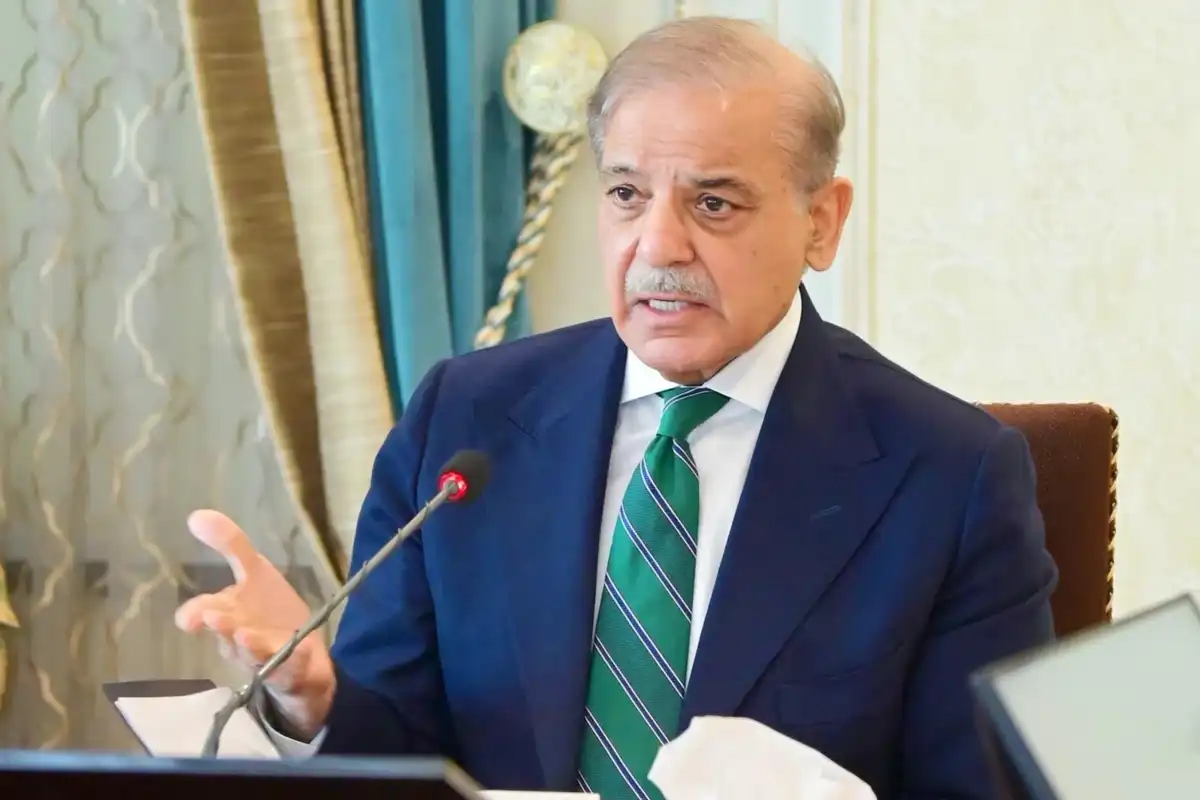Pakistan PM directs withdrawal of immunity proposal for premier in 27th Amendment bill
Shehbaz Sharif says an elected prime minister must remain 'fully accountable' to the law and the people
News Desk
The News Desk provides timely and factual coverage of national and international events, with an emphasis on accuracy and clarity.

Pakistan Prime Minister Shehbaz Sharif ordered on Sunday the withdrawal of a proposal that would have granted the prime minister immunity from criminal prosecution while in office, saying elected leaders must stay “fully accountable.”
In a statement on X, formerly Twitter, Shehbaz said he learned after returning from a visit to Azerbaijan that some party senators had submitted the amendment without it being part of the cabinet-approved constitutional reform draft.
On my return from Azerbaijan, I have learnt that some Senators belonging to our party have submitted an amendment regarding immunity for the Prime Minister.
While I acknowledge their intent in good faith, the proposal was not part of the Cabinet-approved draft. I have…
— Shehbaz Sharif (@CMShehbaz) November 9, 2025
“I have instructed that it be withdrawn immediately,” he wrote. “As a matter of principle, an elected Prime Minister must remain fully accountable, both before the court of law and the people.”
The change had been discussed Saturday in Islamabad during a meeting of a joint parliamentary committee reviewing a wide-ranging constitutional amendment known as the 27th Constitutional Amendment Bill.
According to Pakistani media reports, the proposal was submitted by ruling Pakistan Muslim League-Nawaz lawmakers. It would have inserted the term “prime minister” into Article 248 of the constitution, a clause that already protects Pakistan’s president from criminal prosecution while in office.
PPP pushes for expanding presidential protections
Meanwhile, the Pakistan Peoples Party (PPP), a major coalition ally, pushed for expanding presidential protections. A new clause proposed under Article 248 would grant the president lifetime immunity from arrest or prosecution — including after leaving office.
The broader amendment package has triggered a contentious national debate.
Opposition lawmakers from the Pakistan Tehreek-e-Insaf (PTI) criticized what they called an attempt to push through nearly 50 constitutional changes without adequate transparency. PTI Senator Barrister Ali Zafar said the party boycotted the committee meeting after receiving the draft only hours earlier.
“It seems they want to ensure lifelong immunity for the president — and now, the prime minister as well,” he said outside parliament on Saturday.
27th Constitutional Amendment bill presented in Senate
The federal government on Saturday formally presented the 27th Constitutional Amendment bill in the Senate. The draft outlines significant changes to Pakistan’s judiciary, political structure, and military leadership system. It has been sent to Senate and National Assembly committees on law and justice for review.
The amendments would affect 48 constitutional articles — one of the largest reform efforts in Pakistan in decades. Legal analysts say the changes could reshape the balance of power between Pakistan’s judiciary, civilian government, and powerful military.
Defending the legislation in the Senate, Law Minister Azam Nazeer Tarar said the reforms would ease the burden on Pakistan’s Supreme Court. Only 6% of the top court’s cases are constitutional, he said, yet they occupy 40% of its workload.
What's in the bill?
The bill would create a new Federal Constitutional Court (FCC) focused exclusively on constitutional disputes, including conflicts between Islamabad and Pakistan’s provinces. Tarar said the reforms would strengthen judicial independence by limiting political involvement in judge transfers.
Military changes in the bill include eliminating the office of the Chairman Joint Chiefs of Staff Committee and consolidating top command authority under a newly defined Chief of Defense Forces, to be selected on the prime minister’s advice.
Opposition senators, including Zafar and Raja Nasir Abbas, condemned the speed of deliberations and demanded a full parliamentary debate instead of rapid committee approvals. Finance Minister Ishaq Dar responded that allowing joint committee sessions ensures representation from all political parties.
Aimal Wali Khan of the Awami National Party warned that reforms should not weaken provincial autonomy — a sensitive issue in Pakistan’s devolved political system.







Comments
See what people are discussing